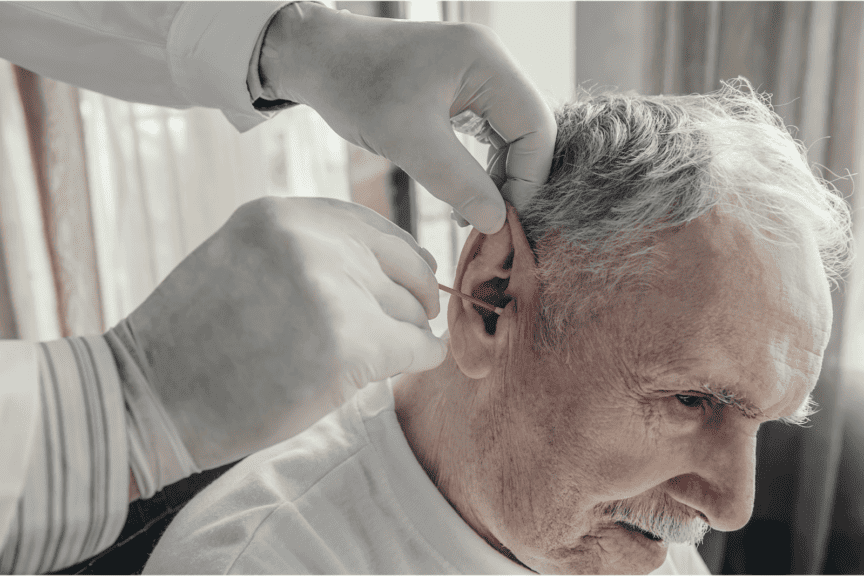Ear wax plays a crucial role in maintaining our ear health. Ear wax, also called cerumen, is a natural substance produced by our bodies that protects our ears from dirt and dust. Let’s dive into the world of ear wax to find out more.
Understanding Ear Wax: A Natural Protector
Ear wax is a waxy, yellowish substance produced by glands in the ear canal. It might seem like a nuisance, but it serves several essential functions. Ear wax helps keep the skin inside the ear canal moisturized and healthy. Without it, the skin could become dry and prone to itching and infection.
Ear wax is also responsible for protecting your ears. It traps dust, dirt, and other foreign particles that may enter the ear canal. Ear wax is an excellent natural defense mechanism, preventing these particles from reaching the delicate eardrum. Ear wax contains antibacterial properties that help protect against infections. It creates an acidic environment in the ear canal that inhibits the growth of harmful bacteria and fungi.
When Ear Wax Becomes a Problem
While ear wax is beneficial, it can sometimes build up in the ear canal and cause problems. Here are some common issues associated with excessive ear wax:
- Ear Wax Impaction: This occurs when ear wax becomes compacted, blocking the ear canal. Symptoms can include hearing loss, earache, tinnitus (ringing in the ears), and dizziness.
- Itching and Discomfort: An excessive build-up of ear wax can lead to itching and discomfort inside the ear.
- Tinnitus: Sometimes ear wax impaction can lead to tinnitus, a persistent ringing or buzzing sound in the ears.
- Infections: In rare cases, a blocked ear canal can lead to ear infections if bacteria or fungi proliferate in the trapped moisture.
The Do’s and Don’ts of Ear Wax Management
Managing ear wax is a balance between maintaining its natural protective function and preventing issues like impaction. Here’s what you should and shouldn’t do:
Do:
- Leave It Alone: In most cases, the best approach to ear wax management is to leave it alone. The ear is self-cleaning, and ear wax typically migrates from the ear canal to the ear’s opening, where it dries up and falls out naturally.
- Use Ear Drops: If you experience mild discomfort due to dry or hardened ear wax, over-the-counter ear drops can soften it, making it easier to move out of the ear canal.
- Seek Professional Help: If you suspect ear wax impaction or have persistent symptoms like hearing loss, consult a healthcare professional. They can safely remove the impacted wax using specialized tools and techniques.
Don’t:
- Put Objects In Your Ear: Avoid inserting cotton swabs, bobby pins, or any other objects into your ear canal to remove ear wax! This can push the wax deeper or even cause injury to the delicate ear structures.
- Ear Candling: Ear candling is an unsafe and ineffective method for removing ear wax. This method is not supported by research and can be dangerous.
Professional Ear Wax Removal
If you experience symptoms of ear wax impaction or you’re not sure about the condition of your ears, it’s best to consult a healthcare professional. We can safely remove impacted ear wax so you can enjoy healthy hearing.
Ear irrigation is the most common way to remove earwax buildup from the ear canal. Warm water or a saline solution is gently flushed into the ear canal to soften and dislodge the ear wax.
Preventing Ear Wax Build-Up
While ear wax is a natural and healthy part of your ear, there are a few things you can do to prevent ear wax from building up in your ear canal.
- Avoid Inserting Objects: As mentioned earlier, don’t insert anything in your ears. This includes cotton swabs, bobby pins, or any other objects. You can use a Q-tip to clean your outer ear, but you should not put anything into your ear canal.
- Regular Check-ups: If you’re prone to ear wax build-up or have a history of ear issues, schedule regular check-ups with an audiologist or ENT specialist.
A Balanced Approach to Ear Wax
Ear wax has a vital role in maintaining ear health and hearing. Strike a balance between letting nature take its course and seeking professional help when needed to enjoy optimal ear health. If you have any concerns about your hearing health, visit us today!

